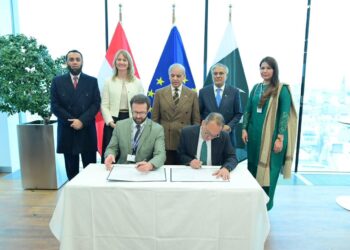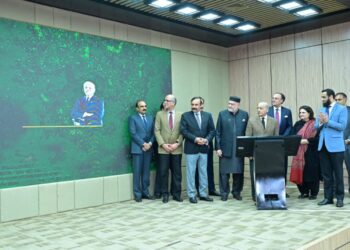Washington, In light of escalating tensions between India and Pakistan following the recent Pahalgam attack, the United States has called upon both nations to act responsibly to ensure peace and stability in South Asia. U.S. State Department spokesperson Timmy Bruce emphasized the importance of dialogue and restraint during a press briefing, highlighting ongoing diplomatic engagements with both countries.
U.S. Calls for Responsible Actions from India and Pakistan
Addressing the press, Timmy Bruce stated that the United States is maintaining active communication with both India and Pakistan at various levels. He urged both nations to seek responsible solutions to their disputes to foster regional peace and stability. Bruce noted that Secretary of State Marco Rubio had held separate discussions with Pakistani Prime Minister Shehbaz Sharif and Indian Foreign Minister Subrahmanyam Jaishankar on Wednesday, focusing on de-escalation and cooperation.
Background: The Pahalgam Attack and Subsequent Developments
The recent attack in Pahalgam, located in Indian-administered Kashmir, resulted in the deaths of 26 tourists, predominantly Hindus. India has accused Pakistan of supporting the perpetrators, an allegation that Islamabad firmly denies. In response, both countries have expelled each other’s diplomats, closed their airspace to one another, and suspended the Indus Waters Treaty. Cross-border skirmishes have also been reported along the Line of Control, raising concerns of a broader conflict.
U.S. Emphasizes Direct Dialogue and Regional Stability
The U.S. has consistently advocated for direct discussions between India and Pakistan. State Department spokesperson Matthew Miller reiterated this stance, stating, “We support direct discussions between India and Pakistan, but the pace, scope, and character should be determined by those two countries, not by us.” The U.S. values its relationships with both nations and encourages them to engage in meaningful dialogue to address mutual concerns.
International Community’s Response and Diplomatic Efforts
The international community has expressed concern over the escalating tensions. Qatar’s Emir Sheikh Tamim bin Hamad Al Thani has offered to work with Pakistan to ensure de-escalation. Additionally, U.S. Defense Secretary Pete Hegseth communicated with Indian Defense Minister Rajnath Singh, expressing sympathy for the victims and support for India’s right to defend itself.
Pakistan’s Position and Calls for International Investigation
Prime Minister Shehbaz Sharif has condemned all forms of terrorism and highlighted Pakistan’s sacrifices in combating terrorism, including the loss of over 90,000 lives and economic losses exceeding $152 billion. He rejected India’s allegations regarding the Pahalgam attack and called for an impartial international investigation to ascertain the facts. Sharif also urged the U.S. to press India to refrain from provocative statements and actions.
Conclusion: The Path Forward
As tensions between India and Pakistan remain high, the United States continues to advocate for responsible actions and direct dialogue between the two nations. The emphasis on diplomacy and cooperation is crucial to prevent further escalation and to promote lasting peace and stability in South Asia.

























